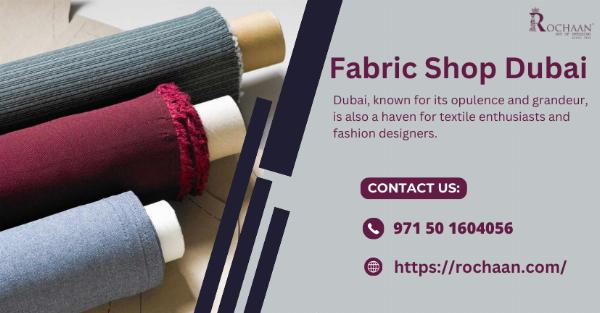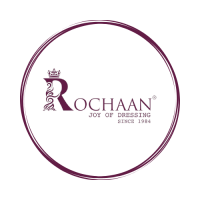How to Find the Best Fabric Shop in Dubai

Strong 8k brings an ultra-HD IPTV experience to your living room and your pocket.
Dubai is renowned for its extravagant lifestyle and luxurious shopping experiences, and its fabric markets are no exception. Whether you’re a fashion designer, a DIY enthusiast, or simply someone who loves beautiful textiles, Dubai offers a plethora of options to suit every need and budget. In this comprehensive guide, we’ll explore the best ways to find top fabric shops in Dubai, from understanding the different markets to tips for negotiating prices, and a helpful FAQ section.
Fabric Shop
The Fabric Scene in Dubai
Overview of Dubai’s Fabric Market
Dubai’s fabric market is a bustling hub that attracts shoppers from around the world. The city’s strategic location and trade-friendly policies have made it a center for textile commerce. Dubai offers a variety of fabrics, from luxurious silks and velvets to practical cottons and linens, catering to both everyday needs and high-end fashion.
Popular Fabric Markets in Dubai
Satwa Fabric Market: Located in the Al Satwa area, this market is known for its wide range of affordable fabrics. It’s a favorite among locals and expatriates alike, offering everything from lace to denim.
Naif Souk: Situated in Deira, Naif Souk is one of the oldest markets in Dubai. It offers a mix of traditional and modern fabrics, making it a great place to find unique materials.
Textile Souk in Bur Dubai: Also known as the Old Souk, this market is located near the Dubai Creek. It’s famous for its extensive selection of fabrics, including luxurious silks, cottons, and embroidered materials.
Dragon Mart: This massive complex in International City is the largest Chinese trading hub outside China. It offers a vast array of fabrics at wholesale prices, ideal for bulk buyers.
Meena Bazaar: Located in Bur Dubai, Meena Bazaar is not only famous for gold and jewelry but also for its diverse fabric shops. It’s a great spot to find traditional Indian and Pakistani fabrics.
Research and Preparation
Identifying Your Needs
Before you start your fabric shopping journey, it’s essential to identify what you need. Consider the type of fabric, the quantity, and the purpose. This will help you narrow down your options and make informed decisions.
Online Research
Make use of online resources to research fabric shops in Dubai. Websites like TripAdvisor, Yelp, and Google Reviews can provide insights into the best places to shop. Look for reviews that mention quality, price, and customer service.
Asking for Recommendations
If you have friends or acquaintances in Dubai, ask them for recommendations. Locals can often point you to hidden gems that aren’t as well-known to tourists.
Exploring Fabric Markets
Satwa Fabric Market
Satwa Fabric Market is known for its variety and affordability. The market is filled with small shops offering everything from simple cottons to elaborate lace. It’s a great place to find fabric for everyday use or special projects.
Tips for Shopping in Satwa Fabric Market:
Bargain: Negotiation is expected, so don’t be afraid to haggle.
Visit Multiple Shops: Compare prices and quality before making a decision.
Ask for Samples: Some shops might provide small fabric samples for you to take home.
Naif Souk
Naif Souk offers a unique blend of traditional and contemporary fabrics. It’s a bustling market where you can find high-quality textiles at reasonable prices.
Tips for Shopping in Naif Souk:
Go Early: To avoid the crowds and get the best selection.
Be Specific: Know what you’re looking for to avoid feeling overwhelmed.
Cash is King: Some vendors may offer discounts for cash payments.
Textile Souk in Bur Dubai
The Textile Souk in Bur Dubai is a must-visit for anyone interested in fabrics. The market is renowned for its luxurious silks and embroidered fabrics.
Tips for Shopping in Textile Souk:
Dress Comfortably: You’ll be walking a lot, so wear comfortable shoes.
Take Your Time: There’s a lot to see, so don’t rush your visit.
Negotiate: Prices can often be brought down with a little negotiation.
Dragon Mart
Dragon Mart is perfect for those looking to buy in bulk. The complex offers a vast selection of fabrics at wholesale prices.
Tips for Shopping in Dragon Mart:
Bring a List: With so many options, it’s easy to get distracted.
Buy in Bulk: Vendors are more likely to offer discounts for larger purchases.
Check Quality: Inspect the fabric carefully to ensure it’s what you need.
Meena Bazaar
Meena Bazaar is a vibrant market with a wide range of fabrics. It’s particularly well-known for traditional Indian and Pakistani textiles.
Tips for Shopping in Meena Bazaar:
Look for Deals: Some shops offer promotions or discounts.
Be Prepared to Bargain: Haggling is a common practice here.
Explore: Take your time to explore the different shops and stalls.
Understanding Fabric Quality
Fabric Composition
Understanding the composition of a fabric is crucial in determining its quality and suitability for your project. Natural fibers like cotton, silk, and wool are typically more breathable and comfortable, while synthetic fibers like polyester and nylon offer durability and affordability.
Thread Count and Weave
Thread count refers to the number of threads per square inch of fabric. Higher thread counts generally indicate a finer, smoother fabric. The type of weave, such as plain, twill, or satin, also affects the fabric’s texture and durability.
Fabric Weight
Fabric weight, measured in grams per square meter (gsm), can indicate how heavy or light a fabric is. Heavier fabrics are more durable and suitable for upholstery or outerwear, while lighter fabrics are ideal for summer clothing and drapery.
Color Fastness
Color fastness refers to the fabric’s ability to retain its color after washing. To test color fastness, rub a small, damp cloth on the fabric. If the color transfers to the cloth, the fabric may not be colorfast.
Chapter 5: Negotiating Prices
The Art of Bargaining
Bargaining is a common practice in Dubai’s fabric markets. Vendors often expect customers to negotiate, and it’s possible to secure significant discounts if you know how to haggle effectively.
Tips for Successful Negotiation
Start Low: Begin with a lower price than what you are willing to pay. This gives you room to negotiate upwards.
Be Polite: Courtesy goes a long way in negotiations. Being polite and friendly can help you build rapport with the vendor.
Buy in Bulk: Vendors are more likely to offer discounts if you buy in larger quantities.
Cash Payments: Many vendors prefer cash payments and may offer additional discounts for cash transactions.
Comparison Shopping: Visit multiple shops and compare prices before making a decision.
Knowing When to Walk Away
If a vendor is unwilling to lower the price to a reasonable level, be prepared to walk away. There are plenty of other shops, and sometimes walking away can prompt the vendor to reconsider their price.
Chapter 6: Ethical and Sustainable Sourcing
Importance of Ethical Sourcing
Ethical sourcing ensures that the fabrics are produced under fair labor conditions and without harmful environmental practices. This is increasingly important as consumers become more conscious of the impact of their purchases.
Certifications to Look For
Look for certifications like Global Organic Textile Standard (GOTS) and OEKO-TEX Standard 100, which ensure that the fabrics meet high environmental and social standards.
Supporting Local Artisans
Buying from local artisans and smaller shops can help support the local economy and preserve traditional textile crafts. These vendors often offer unique, handcrafted fabrics that you won’t find in larger stores.
Frequently Asked Questions (FAQ)
Where is the best place to buy fabric in Dubai?
Some of the best places to buy fabric in Dubai include Satwa Market, Naif Souk, Textile Souk in Bur Dubai, Dragon Mart, and Meena Bazaar. Each of these markets offers a wide range of fabrics at competitive prices.
How can I ensure the quality of the fabric I am buying?
To ensure the quality of the fabric, check for a tight weave, consistent texture, and even color. Request samples if possible, and inspect them for any defects. Understanding the fabric’s composition and weight can also help you determine its quality.
What are the benefits of buying fabric in bulk?
Buying fabric in bulk can lead to significant cost savings, as vendors are often willing to offer discounts on larger orders. It also ensures you have enough material for your projects and reduces the frequency of reordering.
How can I negotiate better prices when buying fabric?
Start with a lower price than you are willing to pay, be polite and friendly, buy in bulk, and consider paying in cash. Comparison shopping and leveraging local connections can also help you negotiate better deals.
Are there any ethical considerations when buying fabric in Dubai?
Yes, consider the labor conditions under which the fabric is produced and the environmental impact of its production. Look for certifications like GOTS and OEKO-TEX, and support local artisans who use sustainable practices.
What types of fabrics are most commonly available in Dubai?
A6: Common fabrics available in Dubai include silk, cotton, wool, linen, and synthetic materials like polyester and nylon. You can also find specialized fabrics like lace, velvet, and embroidered textiles.
Can I find traditional fabrics in Dubai?
Yes, traditional fabrics from various cultures, especially Middle Eastern and South Asian textiles, are widely available in markets like Meena Bazaar and Textile Souk.
What are some tips for first-time fabric buyers in Dubai?
Research markets beforehand, know what type of fabric you need, be prepared to bargain, and inspect the fabric for quality. It’s also helpful to bring a list of requirements and take your time exploring the markets.
How can I support sustainable practices when buying fabric?
Look for fabrics that are certified organic or produced with sustainable practices. Support local artisans and smaller shops that prioritize ethical sourcing and environmentally friendly production methods.
Are there online options for buying fabric in Dubai?
Yes, many fabric shops in Dubai have online stores or offer online ordering. Websites like Desertcart and Dubai Fabric Shop provide a range of options, allowing you to shop from the comfort of your home.
Conclusion
Finding the best fabric shop in Dubai involves a blend of research, exploration, and negotiation. Whether you’re looking for luxurious silks, practical cottons, or unique traditional textiles, Dubai’s fabric markets have something for everyone. By understanding the market, identifying your needs, and following the tips in this guide, you can navigate the vibrant textile scene and find the perfect fabrics for your projects. Happy shopping!
Note: IndiBlogHub features both user-submitted and editorial content. We do not verify third-party contributions. Read our Disclaimer and Privacy Policyfor details.


